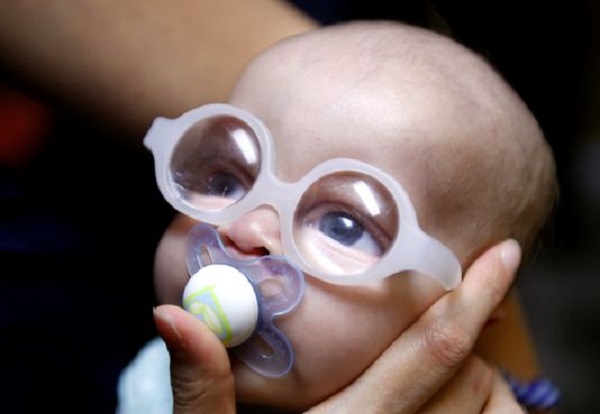In May, Elliott Grace was born with an extremely rare form of dwarfism called Rhizomelic Chondrodysplasia Punctata (RCDP). The condition is so rare that there are only 54-known cases of it worldwide, and 60 percent of people born with RCDP die within the first year. According to the United States National Library of Medicine, the condition is characterized by a shortening of bones in the upper arms and thighs. The condition also causes heart issues, intellectual disability, skeletal abnormalities, respiratory problems, seizures and many other physical problems.
Parents Brandon and Samantha Castro found out something was wrong with Elliott after a visit with a pediatric cardiologist at Vanderbilt University Medical Center in Nashville. Initially, doctors thought their baby had Down syndrome but a prenatal test ruled that out. Samantha said, “We were hopeful that they were all wrong, and at the same time (we had) no clue.”
After Elliott was born, Brandon and Samantha met with Vanderbilt geneticist Dr. Tracy McGregor. Brandon said, “She was like, ‘I’m fairly certain your daughter has rhizomelic chondrodysplasia punctate.’ And I was like, that’s way too many syllables to be good.”
Doctors said they were very concerned with Elliott’s heart and lung function but predicated she would not survive life-saving heart surgery. In fact, USA Today reports that the Castros were asked to consider whether to “put her through the stress of a major surgery that she might not even make it through.” Brandon said they were told they could move forward with surgery or take Elliott home where they thought she would live for about a week.
CLICK LIKE IF YOU’RE PRO-LIFE!
Thankfully, Brandon and Samantha decided not to give up on their daughter and started preparing for her surgery. Samantha said, “We were very much on the same page. We’re not ready to give up on her.” However, doctors discovered that surgery wasn’t necessary after taking Elliott off drugs they thought were keeping her alive. Now their daughter is four months old and recently reached the seven-pound mark. The Castros are currently living with Samantha’s family and receiving help from her parents and siblings.
As LifeNews previously reported, little is known about RCDP since there are so few cases and no financial benefit for scientists and pharmaceutical companies to find a cure. The good news is there is one scientist that has been studying RCPD for decades and recently partnered with a biotech company in Canada to start a clinical trial.
The New York Times reported that Dr. Nancy Braverman is working with Phenomenome Discoveries to try and increase plasmalogen levels in children with RCDP, which could improve symptoms and prolong their lives.








